The year 2020 will be known not only for the coronavirus pandemic that swept across the globe but also for the antiracist protests that focused attention on cascades of killings of Black people by police with impunity, a racial hoax that potentially placed a Black man in mortal danger because a white dog owner did not want to follow park rules to leash her dog, and the teargassing of and violence against peaceful protestors lawfully protesting against injustice. Many of us are asking ourselves what we can do as Black law deans, women law deans, LGBTQ law deans, people of color law deans, allied law deans, and deans with varying intersectional identities to address the malady of racism and the assault on black bodies. The AALS is taking various steps, including the curation of this webpage, to respond to racism in the United States, a scourge that threatens both our democracy and the rule of law.
By creating a space for our collective voices as leaders of law schools to engage our institutions in the fight for justice and equality, we strive to focus our teaching, scholarship, service, activism, programming, and initiatives on strategies to eradicate racism.
To engage as Antiracists, we must listen and learn from each other’s experiences, lead our communities by example, audit our schools to ensure progress toward racial equality (with an understanding that race cannot be neatly segregated from socioeconomic class), influence policy, and iterate our commitment to the fight for racial equality, all to demonstrate our resolve to eradicate racism in the United States.
This antiracist work requires listening to our dean colleagues whose lived experiences with racism offer painful truths about being Black in this country and in the legal profession. This antiracist work requires learning from experts who have conducted research and produced scholarship focused on the negative impacts of racism and intersectional oppressions on Black people in America. This antiracist work requires deans to lead our law schools according to visionary statements and actions that demonstrate a commitment to delivering on an antiracist program of legal education. This antiracist work requires auditing our programs of legal education to assess our progress toward diversifying our faculties, our staff, and especially our student bodies, which in turn diversify our profession. Finally, this work requires design-thinking vigilance—a rinse and repeat if you will—to engage in an iterative process to ensure that we as leaders challenge and reshape the rule of law and institutional practices when they do not yield equity for people of color as well as remain committed to a sustained Antiracist agenda.
The Listening Phase
In the weeks after the killing of George Floyd, law school deans from around the country addressed their law school communities. Before we begin to lead as a group in working to address systemic racism, it is critical to listen to the voices of Black deans, indigenous deans, and other deans personally impacted by police violence.
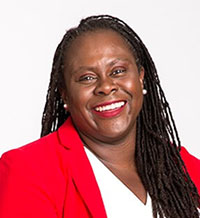
Angela Onwuachi-Willig
Boston University School of Law
The Fire This Time: Reflections on Killings and Protests
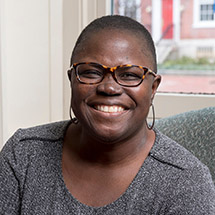
Kim Mutcherson
Rutgers Law School
Link to statement (PDF)
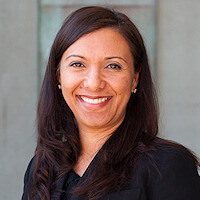
Carla D. Pratt
Washburn University School of Law
Comments About Recent Events
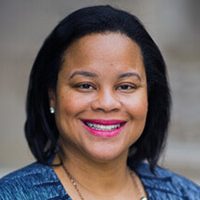
Danielle Holley-Walker
Howard University School of Law
Link to statement (PDF)
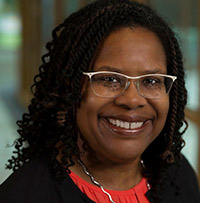
Danielle M. Conway
Penn State Dickinson Law
A Message to the Penn State Dickinson Law Community
The Learning Phase
It is important that as law school leaders we draw on the extensive research that has been done by legal scholars on the issues of police brutality, systemic racism in our criminal justice system, and police reform. These resources are intended to provide a guide to assist deans and other law faculty as we begin to collaborate on meaningful interventions to address these complex issues.
Books
- James Baldwin, The Fire Next Time
- John Hope Franklin and Evelyn Brooks Higginbotham, From Slavery to Freedom: A History of African Americans
- bell hooks, Ain’t I A Woman: Black Women and Feminism
- Ta-Nehisi Coates, Between the World and Me
- Toni Morrison, The Origin of Others
- Nell Irvin Painter, The History of White People
- Angela Y. Davis, The Meaning of Freedom
- Derrick Bell, Space Traders
- Ibram X. Kendi, How to be an Antiracist
- Brittney Cooper, Eloquent Rage: A Black Feminist Discovers Her Superpower
- Clay Smith, Jr., Emancipation: The Making of the Black Lawyer 1844-1944
- Patrice Khan-Cullors and Asha Bandale, When They Call You a Terrorist: A Black Lives Matter Memoir
- Meera E. Deo, Unequal Profession: Race and Gender in Legal Academia
Articles
- Dr. Myron M. Beasley, Performing Refuge/Restoration: The role of libraries in the African American Community – Ferguson, Baltimore and Dorchester, Performance Research 22:1, 75-81 (2017)
- Devon Carbado, Blue-on-Black Violence
- Kimberlé Crenshaw, Demarginalizing the Intersection of Race and Sex
- Melissa Murray, Law School in a Different Voice
- Dayna Bowen Matthew, On Charlottesville, 105 Va. L. Rev. 269 (2019)
- Cheryl Harris, Whiteness as Property (PDF)
- Angela Onwuachi-Willig, Trauma of the Routine
- Katheryn Russell-Brown, Thinking, Talking and Teaching on Race: Derrick Bell’s Space Traders (1996) Journal of Criminal Justice Education, Vol. 7: 113-119
- Ta-Nehisi Coates, First White President
- Ta-Nehisi Coates, The Case for Reparations
- Teri A. McMurtry-Chubb, #SayHerName #BlackWomensLivesMatter: State Violence in Policing the Black Female Body, Mercer Law Review, Vol 67 (PDF)
Studies
- Center for Disease Control and Prevention, COVID19 in Racial and Ethnic Minority Groups
- African American Policy Forum, Columbia Law School, Center for Intersectionality and Social Policy Studies, “Say Her Name: Resisting Police Brutality Against Black Women” (PDF)
Websites
- Lonnie G. Bunch III, The Smithsonian Institution and discussion with Librarian of Congress Carla Hayden
- Bryan Stevenson, Equal Justice Initiative
- Sherrilyn Ifill, NAACP Legal Defense Fund
Music
- Gil Scott Heron, The Revolution Will Not Be Televised
- Bob Marley, War
- Billie Holiday, Strange Fruit
- Garner Family, I Can’t Breathe
- Miguel, How Many
- Common and John Legend, Glory
- Daye Jack and Killer Mike, Hands Up
- Lauryn Hill, Black Rage
- Macklemore, Ryan Lewis and Jamila Woods, White Privilege II
- Public Enemy, Fight the Power
- KRS One, Sound of da Police
- Meek Mill, Trauma
- Meek Mill and Justin Timberlake, Believe
Art
- David Driskell, University of Maryland David Driskell Center for the Study of the Visual Arts & Culture of African Americans & the Africana Diaspora
- Theaster Gates, The potter and social activist and his TED Talk
- Dianne Smith, Harlem-based artist and social activist
- Amos Paul Kennedy, Jr., Former IBM Executive turned print artist
The Leading Phase
We introduce the Penn State Dickinson Law faculty resolution condemning brutality and inequity against Black people, which was unanimously passed on June 2, 2020. With the resolution, the Dickinson Law faculty:
[A]cknowledges that racism is an affliction that we must never enable but should all be active antiracists in taking responsibility to condemn and to end, that we need to identify and challenge systemic prejudice wherever it exists, that we are all accountable for doing the work necessary for policy changes that dismantle structural systems of oppression that perpetuate racial inequities in our society, that we will strive to be better listeners and supporters of those who are the victims of racism, that we will never rest until every American feels safe, free and accepted in our country, and that we will continuously abide by the goal of providing respect and equal treatment to all in upholding the rule of law.We offer this resolution as a template to begin discussions within American law schools about how to transform our institutions into ones that reflect the power and the promise of the rule of law to do equity in service to the principle of equal protection of the law.
Law School Adopters:
Washington and Lee University School of Law
Washburn University School of Law
Faculty Resolutions:
University of Arkansas at Little Rock William H. Bowen School of Law (PDF)
Chicago-Kent College of Law, Illinois Institute of Technology
Boston University School of Law
University of Detroit Mercy School of Law (PDF)
Duquesne University School of Law
Elon University School of Law
University of Florida Fredric G. Levin College of Law
George Washington University Law School (PDF)
University of Hawai‘i at Mānoa, William S. Richardson School of Law
Maurice A. Deane School of Law at Hofstra University (PDF)
University of Illinois at Chicago John Marshall Law School (PDF)
Lincoln Memorial University Duncan School of Law (PDF)
Michigan State University College of Law (PDF)
Mitchell Hamline School of Law (PDF)
University of Pittsburgh School of Law
Rutgers Law School (PDF)
University of South Carolina School of Law (PDF)
St. Thomas University School of Law (PDF)
The University of Utah S.J. Quinney College of Law
Western New England University School of Law (PDF)
Western Michigan University Thomas M. Cooley Law School (PDF)
Willamette University College of Law
The Audit Reporting Phase
Law deans are among the many hundreds of thousands of people and institutions asking: “what can I do and how can I act to stop the killing of Black people and dismantle institutional racism.” We educate students and the larger society about the rule of law. Law deans can lean into this work by conducting audits of their respective schools’ programs to answer the following questions:
- What are the demographics of your student body, and is this achieving representation?
- What are the demographics of your faculty, and is this achieving representation?
- Who has status in your institutions and who is included in important institutional discussions?
- Has your institution conducted a climate survey?
- What Anti-racist curriculum and programming have you developed and implemented?
- Are your faculty colleagues prepared to teach Anti-racist pedagogy?
- Are mental health resources available for students, staff and faculty who experience racism?
- Are employers interviewing your students aware of your school’s anti-racism expectations?
- Are your faculty protected against racial bias of students, alumni, and others?
- Do your promotion and tenure standards account for bias in student and other evaluations of faculty?
- Do your appointments processes account for bias in hiring criteria (e.g. citation counts)?
- Are Black students in your school disproportionately paying more for their education and thereby subsidizing discounted tuition for non-Black students? Ask the same question for other students of color, and measure to what extent subsidization is occurring and commit to mitigation.
- Are the ways of defining merit/eligibility for Law Review and Moot Court equitable to students of color?
- Do you recommend students to the bar who have engaged in conduct demonstrating racial animus during law school?
- Do you have an endowed scholarship fund for students who want to do racial justice work? If not, will you create such a fund and name it for a black life that has been ended by police power in your state or city?
Resource for Implementing Antiracist Action
In support of the Scholar Strike for Racial Justice and Teach-in, seven law schools organized the Law School Anti-Racist Coalition Teach-In hosted by University of Cincinnati College of Law.
Organizers
- Boston University School of Law
- Howard University School of Law
- Penn State Dickinson Law
- Rutgers Law School
- University of California, Irvine School of Law
- University of Cincinnati College of Law
- Washburn University School of Law
Sessions
- Becoming an Antiracist Lawyer
- Black Lawyers Matter
- Building a Faculty-wide Race and Equal Protection of the Law Curriculum for 1Ls
- Building an Antiracist Law School
- Implicit Bias in Bankruptcy Law & Practice
- Race and Contract Law
- Race Matters
- Water Justice in Indian Country
In 2021, the University of Idaho College of Law presented its Sovereignty Series online with the theme of “Indigenizing the Curriculum” organized by Professor Dylan Hedden-Nicely. The speaker series brings tribal leaders, scholars, lawyers, and jurists to the University of Idaho to discuss the unique laws and policies that affect Native American tribes and people. The goal of the series is to present information to help law professors integrate Native law topics into their core classes.
Sessions
Brian Gallini (Dean, Willamette University College of Law) and Elizabeth Kronk Warner (Dean, S.J. Quinney College of Law) have compiled a list of articles and information regarding race and the bar exam.
The Iterative Phase: Confirming that our Actions are Consistent with Statements of Solidarity
The iterative phase requires our continuous engagement to operationalize our stated values. Iteration is a function of design thinking, which asks us to be transparent about for whom we are designing problem-solving systems. As well, it asks whether we are innovating new solutions that are continuously undergoing testing and retesting so that these solutions meet the needs of the person, group, community, and society. Iteration requires long-term commitment and sustained effort to accomplish the desired outcome—Justice for All. Thus, while we archive the Law Deans’ statements to their respective communities in reaction to the killing of George Floyd, we urge you to engage iteratively to embed Antiracist Action into your programs of legal education.
Law School Solidarity and Antiracism Statements:
- Aviva Abramovsky, University at Buffalo School of Law, The State University of New York (PDF)
- Kerry Abrams, Duke University School of Law
- Robert B. Ahdieh, Texas A&M University School of Law, Community Forum (PDF)
- Robert B. Ahdieh, Texas A&M University School of Law, Our Calling (PDF)
- Mark C. Alexander, Villanova University Charles Widger School of Law (PDF)
- Michèle Alexandre, Stetson University College of Law (PDF)
- Vikram David Amar, University of Illinois College of Law (PDF)
- Horace Anderson, Pace University Elisabeth Haub School of Law (PDF)
- James Anaya, University of Colorado School of Law, June 3, 2020
- James Anaya, University of Colorado School of Law, July 21, 2020 (PDF)
- Jerry L. Anderson, Drake University Law School (PDF)
- Mario L. Barnes, University of Washington School of Law
- D. Benjamin Barros, University of Toledo College of Law (PDF)
- Michael F. Barry, South Texas College of Law Houston (PDF)
- April Mara Barton, Duquesne University School of Law (PDF)
- Leonard M. Baynes, University of Houston Law Center
- Theresa Beiner, University of Arkansas at Little Rock William H. Bowen School of Law (PDF)
- Patricia Bennett, Mississippi College School of Law
- Jessica Berg & Michael P. Scharf, Case Western Reserve University School of Law
- Luke Bierman, Elon University School of Law (PDF)
- Richard A. Bierschbach, Wayne State University Law School
- Mary Lu Bilek, City University of New York School of Law
- Mary Anne Bobinski, Emory University School of Law (PDF)
- Craig M. Boise, Syracuse University College of Law (PDF)
- Kathleen M. Boozang, Deborah R. Edwards, and Fr. Nicholas Gengaro, Seton Hall University School of Law (PDF)
- Christopher A. Bracey, The George Washington University Law School (PDF)
- Mark E. Brandon, The University of Alabama School of Law (PDF)
- Karen E. Bravo, Indiana University Robert H. McKinney School of Law
- Martin H. Brinkley, University of North Carolina School of Law
- Joan R. M. Bullock, Texas Southern University Thurgood Marshall School of Law (PDF)
- Marcilynn A. Burke, University of Oregon School of Law
- Henry N. Butler, Antonin Scalia Law School at George Mason University
- Michael T. Cahill, Brooklyn Law School
- Paul Caron, Pepperdine University School of Law
- Megan Carpenter, University of New Hampshire Franklin Pierce School of Law (PDF)
- Erwin Chemerinsky, University of California Berkeley School of Law (PDF)
- Eric C. Christiansen, Golden Gate University School of Law (PDF)
- Annette Clark, Seattle University School of Law
- Marcus Cole, University of Notre Dame, The Law School
- Jennifer M. Collins, Southern Methodist University Dedman School of Law
- Danielle M. Conway, The Pennsylvania State University- Dickinson Law
- Cathy Cox, Sarah Gerwig-Moore, and Alyssa Leffall, Mercer University School of Law (PDF)
- Colin Crawford, University of Louisville Louis D. Brandeis School of Law (PDF)
- Phyllis L. Crocker, University of Detroit Mercy School of Law (PDF)
- Anthony Crowell, New York Law School
- Larry Cunningham and Andy Abrams, Charleston School of Law (PDF)
- Judith Daar, Northern Kentucky University, Salmon P. Chase College of Law (PDF)
- Lincoln Davies (with staff and administrators), The Ohio State University Michael E. Moritz College of Law (PDF)
- Mary J. Davis, University of Kentucky J. David Rosenberg College of Law (PDF)
- Mary Davis (with faculty), University of Kentucky J. David Rosenberg College of Law, Open Letter to Students Past, Present & Future (PDF)
- Leticia M. Diaz, Barry University School of Law
- Darby Dickerson, UIC John Marshall Law School
- Matthew Diller, Fordham University School of Law
- Matthew Diller, Fordham University School of Law, Paths Forward to Address Structural Racism
- Matthew Diller, Fordham University School of Law, Diversity, Equity, and Inclusion Efforts
- Matthew Diller, Fordham University School of Law, Reflection on Derek Chauvin Verdict
- Davison M. Douglas, William & Mary Law School
- Susan H. Duncan, University of Mississippi School of Law (PDF)
- Allen K. Easley, Western State College of Law at Westcliff University (PDF)
- Lyn Suzanne Entzeroth, University of Tulsa College of Law (PDF)
- David L. Faigman, University of California Hastings College of Law (PDF)
- Ward Farnsworth, University of Texas School of Law
- Stephen Ferruolo, University of San Diego School of Law (PDF)
- Joshua P. Fershée, Creighton University School of Law (PDF)
- Daniel M. Filler, Drexel University Thomas R. Kline School of Law (PDF)
- Barbara Glesner Fines, University of Missouri-Kansas City School of Law
- Lee Fisher, Cleveland-Marshall College of Law, Cleveland State University
- Lee Fisher, Cleveland-Marshall College of Law, Cleveland State University, Call to Action
- Timothy Fisher, University of Connecticut School of Law (PDF)
- Susan Freiwald, University of San Francisco School of Law (PDF)
- Neil Fulton, University of South Dakota School of Law (PDF)
- Brian Gallini, Willamette University College of Law (PDF)
- Jace C. Gatewood, Atlanta’s John Marshall School of Law
- Heather K. Gerken, Yale Law School (PDF)
- Risa Goluboff, University of Virginia School of Law
- C. Peter Goplerud, Florida Coastal School of Law (PDF)
- Chris Guthrie, Vanderbilt University School of Law
- Andrew T. Guzman, University of Southern California Gould School of Law (PDF)
- Katheleen R. Guzman, University of Oklahoma College of Law (PDF)
- James Hackney, Northeastern University School of Law
- Daniel W. Hamilton and Sebastian Ross, University of Nevada Las Vegas William S. Boyd School of Law (PDF)
- Anna M. Han, Santa Clara University School of Law
- Brant Hellwig, Washington and Lee University School of Law
- Danielle Holley-Walker, Howard University School of Law (PDF)
- Renée McDonald Hutchins, The University of the District of Columbia School of Law (PDF)
- Rachel M. Janutis, Capital University Law School (PDF)
- Melanie B. Jacobs, Michigan State University College of Law (PDF)
- Garry W. Jenkins, University of Minnesota Law School, George Floyd and the Fight for Justice
- Garry W. Jenkins, University of Minnesota Law School, On the Death of Minneapolis Resident George Floyd
- Christian A. Johnson, Widener University Commonwealth Law School (PDF)
- Jennifer J. Johnson, Lewis and Clark Law School (PDF)
- Kevin R. Johnson, University of California, Davis, School of Law
- William P. Johnson, Saint Louis University School of Law (PDF)
- William P. Johnson, Saint Louis University School of Law, Call to Action (PDF)
- Michael Kaufman, Loyola University School of Law, Chicago
- Joseph D. Kearney, Marquette University Law School (PDF)
- Latonia Haney Keith, Concordia University School of Law (PDF)
- Andrew Klein and Karen Bravo, Indiana University Robert H. McKinney School of Law
- Peter Knapp, Mitchell Hamline School of Law
- Anita K. Krug, Chicago-Kent College of Law
- Madeleine M. Landrieu, Loyola University New Orleans College of Law
- Elena B. Langan, Touro College Jacob D. Fuchsberg Law Center (PDF)
- Tamara F. Lawson, St. Thomas University School of Law (PDF)
- J. Rich Leonard, Campbell University, Norman Adrian Wiggins School of Law (PDF)
- Melanie Leslie, Benjamin N. Cardozo School of Law, Yeshiva University
- Gillian Lester, Columbia Law School
- Browne C. Lewis, North Carolina Central University School of Law (PDF)
- Lyrissa Lidsky, University of Missouri School of Law (PDF)
- Lee Ann Wheelis Lockridge, Louisiana State University, Paul M. Herbert Law Center (PDF)
- Jerrold Long, University of Idaho College of Law (PDF)
- Gregory N. Mandel, Temple University, James E. Beasley School of Law (PDF)
- John Manning, Harvard Law School, Message of Support (PDF)
- John Manning, Harvard Law School, Standing Together at HLS (PDF)
- Stephen W. Mazza, University of Kansas School of Law (PDF)
- Margaret Sova McCabe, University of Arkansas School of Law (PDF)
- Justice (ret.) Elizabeth A. McClanahan (with school leadership), Appalachian School of Law (PDF)
- Michael McGinniss, University of North Dakota School of law
- James McGrath, Western Michigan University Thomas M. Cooley Law School
- Tom McHenry, Vermont Law School
- David D. Meyer, Tulane University Law School
- Thomas J. Miles, University of Chicago, The Law School
- Marc Miller, University of Arizona James E. Roger College of Law
- Eric J. Mitnick, University of Massachusetts School of Law- Dartmouth (PDF)
- Jennifer L. Mnookin, University of California, Los Angeles School of Law
- Richard E. Moberly, University of Nebraska College of Law
- Trevor Morrison, New York University School of Law
- Kim Mutcherson, Rutgers Law School (PDF)
- Jack Wade Nowlin, Texas Tech University School of Law
- Camille Nelson, American University, Washington College of Law
- Vivian I. Neptune, University of Puerto Rico School of Law (PDF)
- Erin O’Connor, Florida State University College of Law (PDF)
- Elaine O’Neal, North Carolina Central University School of Law
- Angela Onwuachi-Willig, Boston University School of Law
- Hari Osofsky, Pennsylvania State University- Penn State Law, BLSA Statement (PDF)
- Hari Osofsky, Pennsylvania State University- Penn State Law, Concrete Action Steps (PDF)
- Hari Osofsky, Pennsylvania State University- Penn State Law, Message of Support (PDF)
- Alicia Ouellette, Albany Law School
- Antony Page, Florida International University College of Law
- Matt Parlow, Chapman University Dale E. Fowler School of Law (PDF)
- Austen Parrish, Indiana University Maurer School of Law
- Stephen C. Payne, Catholic University of America, Columbus School of Law
- Eduardo M. Peñalver, Cornell Law School
- Sergio Pareja, University of New Mexico School of Law (PDF)
- Wendy Perdue, University of Richmond School of Law (PDF)
- Andrew M. Perlman, Suffolk University Law School, To Faculty (PDF)
- Andrew M. Perlman, Suffolk University Law School, To Students on Juneteenth (PDF)
- Nicky Boothe Perry and Deirdre’ Keller, Florida A&M University College of Law, Black people have been struggling to breathe for centuries (in the Florida Courier)
- Nicky Boothe Perry and Deirdre’ Keller, Florida A&M University College of Law,
Healing racial divide starts now (in the Orlando Sentinel) - Christopher J. (C.J.) Peters, The University of Akron School of Law (PDF)
- John K. Pierre, Southern University Law Center
- Susan Westerberg Prager, Southwestern Law School (PDF)
- Carla D. Pratt, Washburn University School of Law
- Gail Prudenti, Maurice A. Deane School of Law at Hofstra University (PDF)
- Margaret Raymond, University of Wisconsin Law School
- L. Song Richardson, University of California, Irvine School of Law
- Laurel Rigertas, Northern Illinois University College of Law (PDF)
- Patricia Roberts, St. Mary’s University School of Law
- Jacob H. Rooksby, Gonzaga University School of Law (PDF)
- Charles H. Rose III, Ohio Northern University, Pettit College of Law
- Laura Ann Rosenbury, University of Florida Fredric G. Levin College of Law
- Jim Roth, Oklahoma City University School of Law (PDF)
- Vincent Rougeau, Boston College Law School
- Jennifer Rosato, DePaul University College of Law (PDF)
- Ted Ruger, University of Pennsylvania Law School
- Ted Ruger, University of Pennsylvania Law School, Continuing Opportunities for Community
- Peter B. Rutledge and Gregory L. Roseboro, University of Georgia School of Law (PDF)
- Leigh Saufley, University of Maine School of Law
- Brad Saxton, Quinnipiac University School of Law (PDF)
- Katharine Traylor Schaffzin, The University of Memphis Cecil C. Humphreys School of Law (PDF)
- Niels Schaumann, California Western School of Law (PDF)
- Michael Hunter Schwartz, University of Pacific McGeorge School of Law
- Sudha Setty, Western New England University School of Law (PDF)
- Michael A. Simons, St. John’s University School of Law
- Bruce P. Smith, University of Denver, Sturm College of Law
- Gordon Smith, Brigham Young University, J. Reuben Clark Law School
- Rodney Smolla, Widener University Delaware Law School (PDF)
- Avi Soifer, University of Hawaii William S. Richardson School of Law (PDF)
- Nancy Staudt, Washington University in St. Louis School of Law (PDF)
- Andrew L. Strauss, University of Dayton School of Law (PDF)
- Henry C. (Corky) Strickland, Samford University Cumberland School of Law
- Douglas Sylvester, Arizona State University Sandra Day O’Connor College of Law
- John Taylor, West Virginia University College of Law (PDF)
- Brad Toben, Baylor University Law School (PDF)
- Donald B. Tobin, University of Maryland Francis King Carey School of Law
- William M. Treanor, Georgetown University Law Center (PDF)
- Anthony E. Varona, University of Miami School of Law
- Robert Vischer, University of St. Thomas School of Law
- Debra Moss Vollweiler, Nova Southeastern University Shepard Broad College of Law (PDF)
- Elizabeth Kronk Warner (with staff and administrators), University of Utah, S.J. Quinney College of Law
- Kevin K. Washburn, University of Iowa College of Law
- Michael Waterstone, Loyola Law School, Los Angeles
- Ronald Weich, University of Baltimore School of Law
- Mark D. West, University of Michigan Law School
- Amy J. Wildermuth, University of Pittsburgh School of Law
- Rob Wilcox, University of South Carolina School of Law
- Verna L. Williams, University of Cincinnati College of Law
- Melanie Wilson and Douglas Blaze, University of Tennessee College of Law
- Leslie E. Wolf, Georgia State University College of Law (PDF)
- Michael J. Yelnosky, Roger Williams University School of Law (PDF)
- Kimberly A. Yuracko (with Shannon P. Bartlett), Northwestern University Pritzker School of Law
- Kimberly A. Yuracko, Northwestern University Pritzker School of Law , Commitment to Anti-Racism
- Joint Statement from the Deans of Texas Law Schools (PDF)
Law school statements will be added to the page on a regular basis. Please contact AALS Media to submit your school’s statement or provide any edits or corrections.
In conclusion, this is a webpage that will transform with every additional resource, statement of solidarity, and active engagement with Antiracist principles.
The curators,
Deans Danielle M. Conway, Danielle Holley-Walker, Kimberly Mutcherson, Angela Onwuachi-Willig, and Carla D. Pratt
